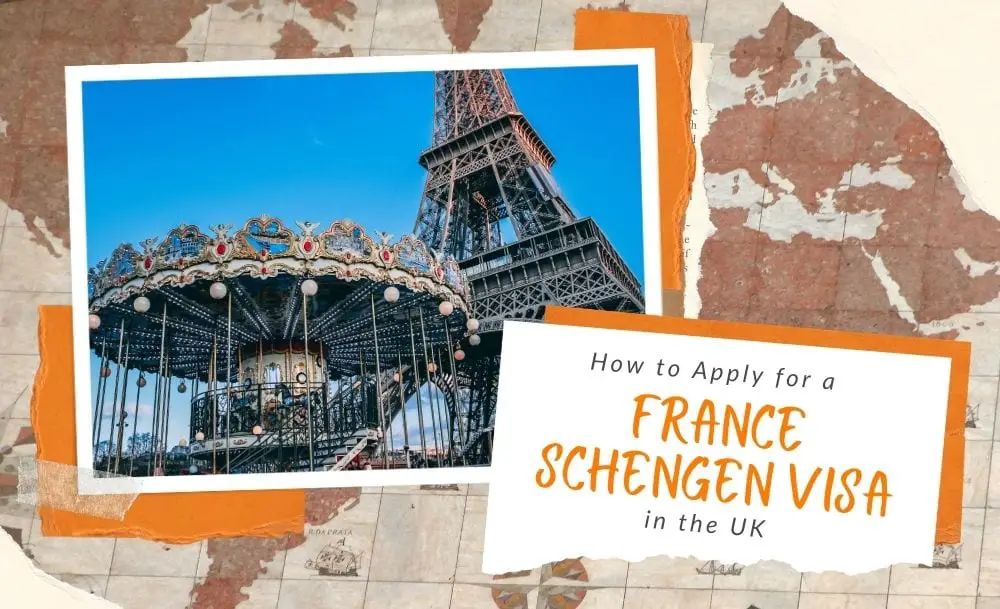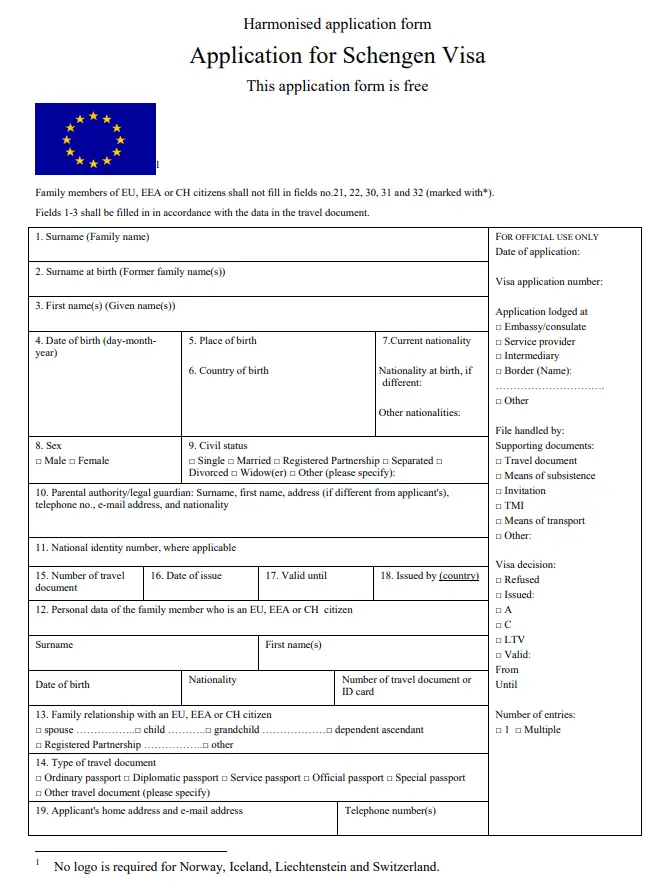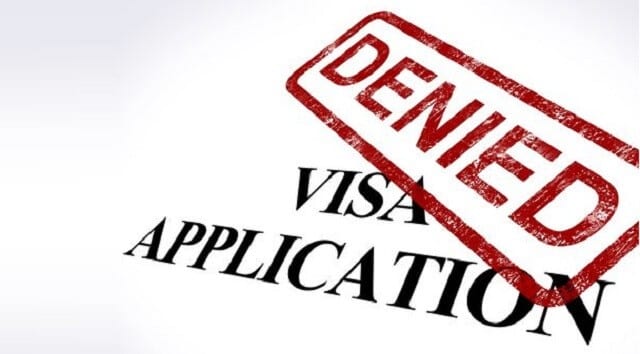Brexit: travel rules between the UK and France
On 1 January 2021 Brexit came into effect, re-establishing the borders between the UK and France. Here's the information you need to know before planning trips between the two countries.
Please consult our dedicated Covid-19 article for the latest updates on travel between the UK and France.
Following a transition period, Brexit came into effect on 1 January 2021 and the UK left the European Union. Free movement no longer applies between the UK and France, and migration controls have been re-established to and from the UK.

Travel arrangements
For British travellers to France:
Since 1 January 2021, British nationals have been subject to more in-depth checks when travelling. They are encouraged to allow additional time for border control and use the queue labelled 'Ressortissant de pays tiers' rather than 'EU / EEA / CH'.
British nationals who are not resident in an EU Member State and who wish to travel to France for a short stay (a maximum of 90 days in a 180-day period), or who are in transit to another Member State or to the Schengen area, do not require a visa.
Travellers need to:
- present their passport with at least six months' validity, which will be stamped upon entering and leaving the Schengen area. The maximum duration of a short stay cannot exceed 90 days within a period of 180 days;
- be able to prove that they have sufficient funds to meet their needs during their stay. With some exceptions, the minimum required in France is calculated as 65 euros per day. Examples of proof include cash or a bank statement;
- obtain travel insurance covering all medical, hospital and death expenses that could be incurred during their stay in France, including repatriation costs for medical reasons. Current EHIC cards will still be valid until their expiry date.
The supporting documents used to verify compliance with the entry conditions are listed in Annex I of the Schengen Borders Code, accessible here (External link) .
Further information on travel arrangements for British nationals to France is available on the French government website here (External link) and the UK government website here (External link) .
For international tourists wishing to visit both France and the UK on the same trip:
EU, EEA and Swiss citizens can travel to the UK visa-free for holidays or short stays. A passport valid for the duration of the stay is required to enter UK territory. Until 1 October 2021, it is also possible to travel with a valid national ID card.
For nationals from outside the EU, a visa may be required to stay in the UK. Further information is available on the UK government website here (External link) .
Travellers from the UK to France are subject to customs control to comply with deductibles for purchases made in the UK, in quantity for alcohol and tobacco, and in value for other goods. The level of these exemptions is specified on the French Directorate General of Customs and Excise website here (External link) .
Purchases made in France may be eligible for tax relief - check here (External link) . PABLO machines, which automate this process, are available in ports, airports and train stations serving the UK.
Further information on customs procedures for UK travellers to France is available on the French government website here (External link) and the UK government website here (External link) .
Download the Brexit guide for travellers (French only) (External link)
Driving licences
British nationals travelling to France for a short stay can drive under their UK driving licence. An international driving licence is not required.
Travelling with pets
It is no longer possible to enter an EU territory with a European pet passport issued in the UK. British nationals travelling to France with dogs or cats must comply with the following health conditions defined by the regulation of 12 June 2013:
- ensure that pets are identifiable by way of a microchip or clearly legible tattoo made before 3 July 2011;
- ensure that pets have been vaccinated against rabies and that the vaccine is still valid;
- ensure that each pet has a health certificate issued by a registered UK vet. The certificate must be accompanied by proof of vaccination against rabies as well as a document attesting to the pet's ID. Certificates are valid for a period of 10 days from the date of issue and must be presented during border checks during this period. They remain valid in EU territories and Northern Ireland for a period of four months.
EU or Northern Irish nationals returning from a temporary stay in the UK and transporting dogs or cats to France must be in possession of a European pet passport. The passport must certify a valid anti-rabies vaccination and must be presented at border control.
On arrival in France, travellers with pets will need to enter through a designated travellers’ point of entry (TPE).
The editorial staff of France.fr follows the trends and news of destinations to bring you stories from France that reveal its innovations and traditions that make you long to (re) discover its territories.
Practical info
Coronavirus Info: the situation in France
Here's what you need to know about visas when visiting France
May 9, 2023 • 4 min read

Here's everything you need to know about visas for visiting France © LeoPatrizi / Getty Images
A trip to France is one of the world’s most sought-after travel experiences.
Whether you need a visa will depend on your individual circumstances, such as your citizenship, your reasons for travel, and how long you plan to stay. Still, all visitors should be up to speed with the entry and exit procedures. Here's our guide to help you on your way.
What you need to know about visas for France
France is part of the Schengen area , a bloc of 27 European countries that have abolished internal border controls. As a result, citizens of Schengen member countries (including non-EU countries Iceland, Norway, Switzerland and Liechtenstein) and Ireland (a member of the EU but not Schengen) can enter France with just a passport or national ID card ( carte d'identité in French) for an indefinite stay.
What about non-EU nationals?
To enter France, nationals of countries outside the EU and Schengen Area will need a passport valid for at least three months after their intended date of departure, along with proof of insurance, evidence of an onward travel ticket and accommodation (or sufficient funds to pay for these), and a visa if required.
Check the French government’s France-Visas website for full details of the information you’ll need to present on arrival in France . The site also has a handy Visa Wizard to help you find out if you need a visa and details of how to apply. France has a well-deserved reputation for red tape, so make sure all your documents are in order.

Many nationalities can visit France visa-free
Citizens of around 60 non-EU countries, including the UK, USA, Canada, Australia, New Zealand, Israel, Hong Kong, Japan, Malaysia, Singapore, South Korea and many Latin American countries, don’t need a visa for a short stay in France.
Nationals of visa-free countries can normally stay for up to 90 days within any 180-day period. Once you leave, you can’t re-enter the Schengen Zone for a further 90 days (you can estimate dates on the EU’s travel day calculator ).
Some countries have special bilateral visa waiver agreements that allow visitors to spend time in one Schengen country without reference to time spent in other countries in the Schengen Area, subject to permission from border officials; check your home country’s government travel advice.
There are some changes ahead
The EU’s Entry/Exit System (EES) , which has suffered some delays but is due to be operational by the end of 2023, will beef up security at external EU borders by electronically monitoring border crossings, making it easier to identify anyone overstaying.
The new European Travel Information and Authorisation System (ETIAS) will come into operation in 2024. Under the new rules, nationals from visa-free countries will need to apply for pre-travel authorization online (arrange it 72 hours ahead of travel). The cost is €7 for a three-year, multi-entry authorization (there's no charge for travelers under 18 and over 70).
Non-EU nationals will need to apply for a Schengen visa
Nationals of non-visa-free countries, including China, India, Nepal, Pakistan and South Africa, need a Schengen Visa to visit France and other member countries. A short-stay Uniform Schengen Visa allows visits of up to 90 days within a 180-day period and is valid for travel throughout the Schengen area. The cost is €80 for adults and €40 for children aged six to 12 (free for children under six).
Visit the French government’s website France-Visas for the latest regulations and information on the process for applying. Find your closest French embassy or consulate on the Ministry for Europe and Foreign Affairs - France Diplomatie website.

Tourist visas can't be extended within France
When your visa expires, you'll need to reapply from outside France to spend more time in the country. It’s not possible to extend tourist visas within France, except in emergencies (for example, a medical emergency), in which case you should contact your nearest Préfecture .
Student visas are available
Tourist visas cannot be changed into student visas after arrival, but students sitting university-entrance exams or attending interviews in France can apply in advance for a special short-term étudiant concours (literally, "student-in-competition") visa. Details are listed on the French government website Campus France .
Working holiday visas in France are valid for a year
If you’re from a country with a working holiday visa agreement with France and are aged between 18 and 30 (or 35 if you're from Canada), you may be eligible to apply for the programme vacances-travail (PVT) scheme through the French embassy or consulate in your home country. The scheme allows participants to live and work in France for 12 months. Currently, France has arrangements with Argentina, Australia, Brazil, Canada, Chile, Colombia, Ecuador, South Korea, Hong Kong, Japan, Mexico, New Zealand, Peru, Russia, Taiwan, and Uruguay.
This article was first published May 2021 and updated May 2023
Explore related stories

Apr 1, 2024 • 8 min read
While it’s hard for anyone to leave Paris, these day trips offer bucolic nature, gorgeous cathedrals and more – all only an hour or so away.

Mar 31, 2024 • 6 min read

Feb 23, 2024 • 5 min read

Jan 6, 2024 • 8 min read

Jan 5, 2024 • 20 min read

Dec 6, 2023 • 11 min read

Nov 28, 2023 • 4 min read

Nov 25, 2023 • 7 min read

Oct 20, 2023 • 5 min read

Oct 3, 2023 • 4 min read
- Corporate Profile
- Terms & Conditions
- The IaM Dream Team
- Specialist Immigration Advice Regulated by the OISC
- British Council Accreditation For Student Services
- Canada Registration Authority Immigration Advisors
- Review our service
- UK Immigration Lawyers
- Business Development Managers
- Expansion Project
- Tier 1 Investor Visa UK
- Tier 1 Graduate Entrepreneur Visa UK
- Tier 2 UK General Visa
- Tier 2 UK Overseas Qualified Nurses (OQN)
- Employment Services
- Tier 2 UK Intra Company Transfer Visa
- Tier 2 UK Intra Company Transfer Visa (Sub-Categories)
- Tier 2 UK Minister of Religion Visa
- Tier 2 UK Sports Person Visa
- Tier 2 UK Priority Applications Visa
- Tier 2 UK Shortage Occupations List
- Tier 4 (General) UK Student Visa
- Tier 4 UK Student Visa
- Tier 4 UK Student Visitor Visa
- Tier 4 UK Post-Graduate Visa
- Tier 4 (Child) UK Student Visa
- Tier 4 UK Doctorate Extension Scheme Visa
- Student Services
- Tier 5 UK Youth Mobility Scheme Visa
- Tier 5 UK Charity Workers Visa
- Tier 5 UK Creative and Sporting Visa
- Tier 5 UK Religious Worker Visa
- Tier 5 UK Government Authorised Exchange Visa
- Tier 5 UK International Agreements Visa
- Standard Visit Visa
- Business Visitor Visa
- Family Visitor Visa
- Child Visitor Visa
- Marriage Visitor Visa
- Domestic Workers Visas
- UK Ancestry & Commonwealth
- British Citizenship
- Family Immigration Visa Applications
- EEA Applications
- Long Residence
- Indefinite Leave to Remain (ILR) or Settlement
- Replacement Biometric Residence Permit (BRP) Application
- Visit Russia
- All About Schengen Visas
- What is the Schengen Agreement?
- Schengen Countries
- Schengen Visa Types & Validity
- Schengen Visa Application Requirements
- Who Needs to Apply for a Schengen Visa to Europe?
- How to Apply for a Schengen Visa
- Schengen Visa Fees
- Schengen Visa News
- US Visa Application Form
- Switching UK Visas
- How to Apply for a British Passport
- Embassies, High Commissions, and Consulates in the UK
- Full Consultation
- Immigration Consultation
- Free 30 Minutes Consultation
- Free 15 Minutes Consultation
- Application Preparation
- Fast Track Same Day UK Immigration Applications
- Life in the UK
- Plane Tickets and Travel Services
- Landing Pack
- iam learning English
- Tenants Right To Rent
- Book an Appointment
- Working in the UK
- Sponsorship Application for UK Immigration
- Global Mobility
- Businesses and Institutions
- Estate & Letting Agents
- Landlords Right To Rent
- Education Providers
How to Apply for a France Schengen Visa in the UK

From the boulevards of Paris to the fashionable seaside resorts of the Côte d'Azur, France is a beautiful country that boasts of spectacular cities with picturesque topography, colourful culture, free-spirited people and delectable cuisine. These scenic places have been the muse to many poets and artists, and continue to make France the world’s most popular tourist destination receiving 82 million foreign tourists annually.

Visitors are attracted by historic cities, a beautiful countryside, the castles of the Loire Valley, and Brittany and Normandy. In addition, France offers an agreeable climate, some excellent beaches on the French Riviera, the Atlantic coast and the island of Corsica, wide possibilities for winter sports, most notably in the Alps and the Pyrenees, and a rich culture with food and wines that are among the most celebrated in the world.
Entry Restrictions in Response to Coronavirus

In early 2020, France was among the Schengen countries that closed their borders in response to the COVID-19 pandemic. France started to open its borders back up for travel in June 2020, with restrictions. Since then, the country has updated its restrictions regularly depending on the current situation of the virus in each country.
France has adopted its own national classification of risk areas, therefore travel restrictions for the country are not based on the “EU Traffic Lights” map of other Schengen and EU countries.
It is advisable to check with the official French government website for information on what requirements you will need if you wish to travel to France while COVID-19 restrictions are in place and if you will be able to travel to the country.
Travel to French overseas territories
Regular flights between metropolitan France and its overseas territories resumed in late June. Travellers need to provide a negative RT-PCR test taken in the 72 hours preceding arrival, and complete a self-declaration of absence of COVID-19 symptoms and contact with confirmed cases in the 14 days preceding arrival for entry into all French overseas territories. This is available in English on the site of the French Embassy London .
For travel to French Guiana, French Polynesia, Mayotte, New Caledonia and Wallis and Futuna you must present an international travel certificate confirming that your journey is essential and that you have not been suffering from a set of listed symptoms associated with COVID-19 or in contact with confirmed cases in the 14 days prior to travel. It is available on the Ministry of Interior website . The certificate is to be presented to transportation companies before boarding, as well as to border control authorities.
International travel certificates are not required for travel to other French overseas territories.
See travel advice pages for the French overseas territory you are visiting .
France and the UK Post-Brexit
In January of 2021, Air France-KLM announced that it will require an airport transit visa (ATV) for some passengers connecting to the UK. An ATV is a document that grants access to a traveller to pass through the international zone of an airport, without entering the country’s territory.
Nationals from the following countries will be required to apply for an ATV:
- Africa: Angola, Cameroon, Central Africa Republic, Democratic Republic of Congo, Eritrea, Ethiopia, Ghana, Guinea, Ivory Coast, Mali, Mauritania, Nigeria, Senegal, Sierra Leone, Somalia, Sudan, South Sudan.
- Asia : Afghanistan, Bangladesh, Iran, Iraq, Pakistan, Philippines, Palestine, Russia, Syria, and Sri Lanka.
- Caribbean and South America: Cuba, the Dominican Republic, and Haiti.
All other passenger transits (changing flights without exiting the airport) through France to the UK remain visa-free.
Who needs a visa to travel to France from the UK?
Travelling to france for eu/eea citizens.
France is a Schengen country , which allows for free movement between the 26 EU and EFTA states (Iceland, Norway, Liechtenstein, and Switzerland) . A uniform Schengen visa issued by one of the Schengen states is valid for travel within the whole Schengen area.
Travelling to France Post-Brexit for UK Citizens
The rules for travelling or working in European countries changed on 1 January 2021:
- you can travel to countries in the Schengen area for up to 90 days in any 180-day period without a visa as a tourist, to visit family or friends, to attend business meetings, cultural or sports events, or for short-term studies or training
- if you are travelling to France and other Schengen countries without a visa, make sure your whole visit is within the 90-day limit. Visits to Schengen countries within the previous 180 days before you travel count towards your 90 days
- for long-stay visits, to work or study, for business or for other reasons, you will need to meet the French government’s entry requirements.
- if you stay in France with a residence permit or long-stay visa, this does not count towards your 90-day visa-free limit
At French border control, you may need to use separate lanes from EU, EEA and Swiss citizens when queueing. Your passport may be stamped on entry and exit. You may also need to:
- show a return or onward ticket
- show you have enough money for your stay
There are separate requirements for those who are residents of France. If you are resident in France, you should carry proof of residence as well as your valid passport when you travel. You should also check your passport’s validity when you travel and renew it if you don’t have enough time on it. Your passport must be:
- valid for at least 3 months after the day you plan to leave France or any other Schengen country
- less than 10 years old
Travelling to France for Other Third Country Citizens
Citizens of the following countries residing in the UK and planning to visit France are required to get a France Schengen visa in order to be able to enter France.
The main requirement is that you must have a UK residence permit valid for at least another three more months beyond the date you plan to leave France / the Schengen Area.
Before starting a visa application, or getting a flight to France, make sure to check whether you need a visa to France or not.
If you have a 3-month UK visa you can extend it for three more months in order to be eligible to apply for a French Schengen visa from within the UK. You must apply for an extension before your visa expires and while you’re still in the UK.
What are the requirements for extension of a Leave to Remain?
When you decide to apply for an extension you must make sure you comply with several situations:
- You must require extension in the same visa type you currently have
- You should apply for an extension at least 8 weeks before the existing visa period exceeds
- You must have not been part of any criminal activity or you must have not broken any UK law or Immigration law during the entire period of stay in the UK
- You have to provide the biometric information – such as the fingerprints and recent photographs for yourself and any depended when applying for the extension
- You must have not been in breach of immigration laws while having a valid UK visa
Note : You can stay in the UK until the decision about the extension is taken, but only if you have applied within the visa period.
You should apply for a French visa at the appropriate French Embassy/Consulate or French visa application center in the UK if:
- France is the only Schengen country you plan on visiting
- France is your main destination (the country you will be staying the longest in)
- France is the first Schengen country you are visiting (when spending an equal amount of days in France and another Schengen country)
In case you plan on staying in France for more than 90 days you must apply for a residency permit, not a French Schengen visa.
Please, note that if you are not a resident in the United Kingdom you should apply at the French Embassy/Consulate/VAC in your home country of residence.
Related articles:
- Embassies and Consulates in the UK
- ETIAS – European Travel Information and Authorization System
- EU Settlement Scheme for Non-EU/EEA Family Members
- Brexit Reminder: Things that will change in 2021
Steps to applying for a French Schengen visa from the UK
step 1: know your visa type and validity.
There are 2 types of visa that you can apply for and the one you need will depend on the duration of your trip and your reason for travelling to France:
- Short-stay (Schengen) Visa – valid for up to 90 days (in a 180-day period) for the purposes of tourism, business, visiting family/friends, conference, EEA/EU national family member
- Residence and work permits ( Long stays) – you should apply for this kind of visa if you want to live in France for more than 90 days for employment, family reunification, study, research etc.
You will then be issued either a single entry, double-entry, or multiple-entry visa for up to 5 years based on the information you provide in your visa application.
It is important to choose the correct Schengen visa type to apply for depending on your trip so that you have the best chance of having your application approved. Find out more about the different types of Schengen visas in our blog post: Schengen Visa Types – All You Should Know When Applying for a Schengen Visa .
Step 2: Identify where to make application and book an appointment
To apply for a French visa in the UK you must book an appointment with the French Consulate General in London.
This can be done in different ways:
- By booking an appointment at the French Consulate General in London. This type of appointment is known as a direct appointment . Direct appointment bookings are free of charge and you should do it in person. You can book a direct appointment only on Wednesday mornings. Processing delays still apply. Please, be aware that there is a longer appointment waiting time for the French Consulate General in London.
- Through TLS contact’s in London, Edinburgh and Manchester, by phone or by filling an online application form.
- Use a service like IaM who will also make sure that your application will have the best chance of being approved
You can book a French visa appointment at the Consulate General of France in London if you are a UK resident living in:
- Northern Ireland
- The Falkland Islands.
Step 3: Complete your application form

The Schengen Visa application form contains questions about you including:
- Name and surname
- Date and place of birth
- Nationality
- Sex and marital status
- National Identity number
- Passport number
- Home address and email
- Purpose of trip
- Question regarding previous trips to Schengen, if any
- Intended date of arrival in Schengen area you are visiting, and the intended period of stay
- Cost of traveling and remaining in Schengen area you are visiting, who will cover them, etc.
Make sure your answers are correct and that they comply with the information in the rest of the documents. Complete the form, print it twice, and sign both copies at the end. Find out more about how to complete a Schengen vis application form in this blog post .
Step 4: Prepare your documents
The following list of documents are required in order to obtain a visa to France in the UK:
Note : Photocopies of the original documents should also be submitted and documents should not be more than one month old.
The documents listed above are documents required in all cases, regardless of the purpose of your visit in France.
Depending on your employment status, here is a list of additional documents that are required for your visa application:
For employees:
- Employment contract
- Current bank statement of the latest 6 months
- Leave permission from the employer
- Income Tax Return (ITR) form or Certificate of Income Tax deducted at the source of salary
For the self-employed:
- A copy of your business license
- Company bank statement of the latest 6 months
- Income Tax Return (ITR)
For foreign students in the UK:
For retirees:.
- Pension statement of the latest 6 months

If unemployed and married to an EU citizen:
- A recent (less than 3 months old) Confirmation of Employment letter from their spouse’s employer stating the position held within the company as well as the starting date,
- Spouse’s valid passport
- An officially translated marriage certificate. The translation must be in English or French and must be certified as a true copy by the Embassy of the country where the marriage took place or by the Legalization Bureau of the Foreign Office in the UK
Requirements for children under the age of 18:
Parents or an adult guardian are required to accompany their under-age children at the application centre at the Embassy of France in London. Also, minors who are granted a French visa are not allowed to travel to France by themselves. They should be accompanied by an adult during their stay in France.
Step 5: Attend your appointment
On the day of the interview, show up at the appointment centre on time (embassy or consulate). Remember that if you are late even for a few minutes, then they will probably cancel your appointment. Try wearing something a bit more official, but comfortable.
The France visa interview takes around 10 minutes to complete. During this interview, the consular officer will ask you several questions about you and your intended trip. You will also be submitting the required documents throughout the meeting, to the interviewer.
After the verification of your application, the application form information will be entered into the online system of the consulate or embassy and you will receive a printed copy of your application, which process usually takes about 10 to 15 minutes. After you get the printed form, please make sure to verify all the details are correct and sign the form.
Underage applicants must be accompanied by their mother/father/legal guardian.
Visa Fees for UK Residents
The fee must be paid upon submitting the French visa application. After you complete this payment, you will receive a receipt, which shows that payment has been made, which must be offered amongst other documents of the application dossier. You will have to pay a France visa fee in order for your application to be processed.
Since France is a Schengen state, visa fees are the same as any other Schengen visa. These are the costs of a French Schengen Visa when applying from UK:
Service Fees
Starting from 24 July 2020 till 31 December 2021, the service fee , mandatory for any visa application, is GBP 32.43 . This amount has been decided in agreement with the Consular Authority and corresponds to the different services provided by the TLScontact centre:
- Appointment bookings;
- Visa application reception;
- Information collection;
- Data processing;
- Transfer to the Consulate General of France in London;
- Reception and sorting of passports;
- Contact of applicants upon return of passports from the Consulate General of France in London;
- Handling telephone, online messages or email enquires of applicants by Call Centre.
These fees are payable at TLScontact Visa Application Centre by:
- Debit card;
- Credit card (American Express is not accepted).
Added-value Service Fees
- Premium lounge service: £28 (per applicant);
- Photocopy: £0.20 (per copy);
- Courier return fee via DX: £15.10 (per applicant).
Note : The visa fee and service fee are both non-refundable and non-transferable if the visa application is denied by the Embassy staff or if the applicant decides to terminate his or her application and does not guarantee that you will be granted a visa.

France visa fee exemptions for UK residents
Besides children younger than 6 years of age, these are other applicants that are exempted from a French visa application fee ( Source: TLScontact ) :
- Spouse of a French citizen
- Family member of a UE/EEE national travelling along with the UE/EEE family member
- Children below the age of 21 and financially dependant of a UE national
- Ascendants financially dependant of a UE national
- Pupils, students and accompanying teachers during a school trip
- Scientists (holders of a « convention d’accueil » only for short stays)
- Foreign teachers teaching French (in activity)
- Scholarship holders from the French government, foreign governments, foreign foundations or payees of EU programs (only to travel within the territory designated by the terms of the founding program).
Step 6: Receive your visa
Visa application processing time in uk.
You can apply for a France Schengen Visa 6 months before your planned trip. Depending on the nationality of the applicant, the processing time may take at least 15 days from the day of application. In some cases when required documents are missing from the application, this process may take longer.
Therefore, to avoid unwanted complications, the French Consulate General in London advises that you provide all required documents and submit your application at least 20 workdays (4 weeks) before the day you leave for France.
Once your visa is approved, it will be stamped in your passport. Make sure to carefully check the visa sticker to make sure everything is correct and exactly how you need it.
France Schengen Visa Extension
A person visiting France on a Schengen Visa is allowed by law to extend their visa if they have legitimate reasons. This could be either personal, professional, medical, emergencies or any other. The decisions to approve a Schengen visa extension request are handled case by case.
The duration you are allowed to stay in France will be stated in your Schengen visa sticker . It is important not to overstay during your trip to France or the rest of the Schengen Zone or risk facing penalties like a fine, deportation, being banned from travelling back to the Schengen Zone, and having difficulties in your future Schengen applications.
There are also cases when people do not get any penalties for overstaying, for example, a child or a person that cannot travel without a caretaker because of an illness or disability or an unforeseen event that prevents you from leaving the country, like COVID-19.
Find out more about overstaying in the Schengen visa in our blog post .
France Schengen Visa Extension Process
The overall process of extending your French Schengen Visa will involve:
- Determining whether you have a justified reason to request for an extension
- Submitting all the necessary documents. These include a valid passport that has the Schengen Visa used to get in the Schengen area stamped in it, one passport-sized photo, proof of financial subsistence, Schengen Visa Insurance that covers the extension duration, and all the documents that justify your reason for an extension
- Paying visa fees where applicable
- Attending a visa interview if necessary
- Waiting for the approval
You must apply for a Schengen Visa extension before it expires. It may take a few days to a month for the authorities to process your visa extension request, during which you are legally permitted to stay in the country where you applied for the Schengen visa but cannot travel to other Schengen countries.
If your visa extension request is approved, you can extend your stay in the Schengen Area until the visa validity. However, if your visa extension application is rejected, you will have to leave the Schengen area in a day or two.
Visa application rejection

There are a few common reasons why your visa application might be rejected. For example, if you provide illegitimate or insufficient documents, apply for the wrong type of visa, or fail your immigration interview .
If your visa application is rejected, you will not be refunded for your application. You will need to either appeal or file the application again. To avoid this hassle, make sure your documents are in order and you fill out the form correctly . With a service like IaM , we check your application before submission to ensure the highest possibility of having your visa application approved.
Contact Details for the French Embassy and Consulate in London
Consulate General of France in London
Address: 6A Cromwell Place, London SW7 2EW
Telephone: +44 20 70 73 1200
Fax: +44 20 7073 1218
Email: [email protected]
Hours: Monday-Friday 9.30 am-12 pm
Embassy of France in London
Address: 58 Knightsbridge, SW1X 7JT London
Telephone: +44 20 7073 1000
Fax: +44 20 70 73 1000

Frequently Asked Questions About France Schengen Visas
Can i travel to france visa-free with my brp.
If you are a national of a third country without a visa-free scheme with the EU, you will need to get a visa to travel to France or any other Schengen country. You should also remember to bring your biometric card with you for your return to the UK.
Can I visit French overseas territories with a French Schengen Visa?
No, you will not be able to visit the French overseas territories, which include Reunion, French Guiana, Guadeloupe and Martinique, Mayotte, Saint-Barthelemy, Saint-Martin, French Polynesia, New Caledonia, Saint-Pierre and Miquelon, Wallis-et-Futuna and the French Southern and Antarctic Lands.
Can I apply for a French Visa if my UK residency permit expires soon?
You must have at least 3 months remaining on your UK residency permit counting from the day you depart from France.
Can I apply for a French Visa at the external border?
Yes, in exceptional cases.
What can I do if my French visa gets denied by the French consulate in London?
You can appeal against the French diplomatic office’s decision to reject your French visa, within the period of 2 months from the date of notification of the refusal.
Will I get a refund if my visa is rejected?
Unfortunately, no. You will not receive a refund if your application is denied at the embassy.
Can my French Schengen Visa be annulled or revoked, and if so for what reasons?
Your French visa may be annulled for the following reasons:
- The necessary conditions to get the visa were not met at the time the visa was issued
- The necessary conditions are no longer met
- The visa holder asks the revocation
- The visa holder can’t provide the supportive documents at the border
What visa should I apply for if I want to stay in France for longer than 3 months?
If you want to stay in France between three months to one year, you are required to apply in advance for a long-stay visa, whatever your nationality is. This visa will give you the same rights as the Schengen Visa.
Ready to make your application for France? Comment below.
Iam can help with your visa application to the united states, the uk & other countries.
If you need help with a US visa , a UK Visa , or visa to Europe , including help with appointment booking obligations, IaM can help. For more information and advice on US immigration, UK immigration law and US visa applications or if you need any help or assistance please, reach out to your Visa Coordinator at IaM .
- Latest Posts
- How to Apply for an Estonia Schengen Visa from the UK - 27 December 2021
- How to Apply for a Netherlands Schengen Visa from the UK - 20 December 2021
- How to Apply for a Czech Republic Schengen Visa from the UK - 13 December 2021
Related Posts:

Leave a Reply Cancel reply
You must be logged in to post a comment.
This site uses Akismet to reduce spam. Learn how your comment data is processed .
- Privacy Policy
© 2024 IaM (Immigration and Migration) | UK.
Privacy Overview
Be confident in your visa application.
Avoid anxieties & confusion with your FREE Step-by-Step DIY Schengen Visa Guide
" * " indicates required fields
We consider it a privilege to serve you and look forward to providing you with important messages about your Schengen visa. We may also occasionally send you additional insights and opportunities. However, we hate spam as much as you do and will not spam you in any way. You can opt-out at any time. You can view our privacy policy.

No thanks. I don’t want the FREE guide. I’m happy to miss out on the travel opportunities to Europe.
Avoid Anxieties. Get a clear Uncomplicated Guide!
FREE Step-by-Step DIY Schengen Visa Guide

- Avoid visa refusals
- Get appointments
- Get your visa in time
Yes I want access!
Cookies on GOV.UK
We use some essential cookies to make this website work.
We’d like to set additional cookies to understand how you use GOV.UK, remember your settings and improve government services.
We also use cookies set by other sites to help us deliver content from their services.
You have accepted additional cookies. You can change your cookie settings at any time.
You have rejected additional cookies. You can change your cookie settings at any time.
- Visas and immigration
- What you need to do
How to apply for a visa to come to the UK
Choose a visa.
You may need a visa to come to the UK to study, work, visit or join family.
There are different visas depending on:
- where you come from
- why you want to come to the UK
- how long you want to stay for
- your personal circumstances and skills
Before you apply, you must check if you need a visa and what type you need. Depending on your nationality, you might not need a visa to visit or transit through the UK.
Your application must be approved before you travel.
You do not need to apply for a visa if you’re an Irish citizen.
If you want to visit the UK
Apply for a Standard Visitor visa to visit the UK for up to 6 months. For example:
- for a holiday or to see family and friends
- for a business trip or meeting
- to do a short course of study
You must apply for a Marriage Visitor visa if you want to visit the UK to get married or register a civil partnership.
If you have a visitor visa you cannot take a job in the UK.
If you’re travelling through the UK
You might need a visa if you’re travelling through the UK on your way to another country, for example if you have a layover between flights.
Apply for a visa to travel through the UK .
If you want to study in the UK
Your course length, type and place of study affect which visa to apply for.
A Standard Visitor visa lets you do a short course of study that lasts no longer than 6 months.
A Short-term study visa lets you come to the UK to study an English language course that is over 6 months and up to 11 months.
A Student visa is usually for a longer course. You must be sponsored by a licensed college or university and have a confirmed place. On this visa, you may be able to do some work.
A Child Student visa is for 4 to 17 year olds who want to study at an independent school. If you’re 16 or over, this visa lets you do some work.
If you want to work in the UK
You can work in the UK on a short or long-term basis with a work visa. There are many types of work visa .
The visa you need depends upon:
- your skills and qualifications
- if you have a job offer and sponsorship
- if you want to bring your family with you
- what you’ll be doing - for example sporting, charitable or religious work
You can set up a business with an Innovator Founder visa .
If you want to join family in the UK
If you’re a spouse, partner or family member of someone who has British citizenship or settlement in the UK, you can apply for a family visa to join them. They may need to show that they can support you financially.
You may be able to apply for indefinite leave to remain ( ILR ) after a set amount of time living in the UK.
If your family member is in the UK on a visa
You may be able to apply for a visa to join a family member who’s in the UK on a visa. They must be either:
- your spouse or partner
- your parent if you’re 18 or under
Check what visa you’ll need to join them.
Family reunion visas for refugees
If you were separated from your partner or child when you were forced to leave your country, they can apply to join you in the UK.
Your family members can apply if you have been given asylum or 5 years’ humanitarian protection, and not have British citizenship.
If your family member is from the EU, Switzerland, Norway, Iceland or Liechtenstein
You can apply for a free EU Settlement Scheme family permit to come to the UK if you have a close family member who:
- was living in the UK by 31 December 2020
- has pre-settled or settled status
- you had a relationship with by 31 December 2020 (unless you’re applying for a child who was born or adopted after this date)
Close family members include your spouse or civil partner, child, grandchild, parent or grandparent.
A family permit lets you live, work and study in the UK for up to 6 months. You can apply to the EU Settlement Scheme to stay in the UK after your family permit expires. You usually need to apply within 3 months of arriving in the UK.
Other ways to get permission to live in the UK
If you’re from the eu, switzerland, norway, iceland or liechtenstein.
If you started living in the UK by 31 December 2020, you may be able to apply to the free EU Settlement Scheme instead of applying for a visa. The deadline to apply was 30 June 2021, but you can still apply if you can show reasonable grounds for the delay in applying.
Check if you can still apply to the EU Settlement Scheme .
You can only apply from outside the UK if you have a valid passport or national identity card with a biometric chip.
Commonwealth citizens
You can apply for an Ancestry visa to work in the UK if you have a British grandparent and meet other eligibility criteria.
You may have right of abode to live in the UK.
If you’re a Commonwealth citizen and cannot prove your right to be in the UK, read about the Windrush scheme .
Returning residents
You’ll need to apply for a returning resident visa to come back to the UK if one of the following is true:
you had indefinite leave to remain under the EU Settlement Scheme (‘settled status’) and left the UK for more than 5 continuous years (or 4 continuous years if you’re a Swiss citizen or their family member)
you had permanent permission to stay in the UK (‘indefinite leave to remain’) but it was not under the EU Settlement Scheme and you left the UK for more than 2 years
Other visas
There may be another visa that’s right for you based on your circumstances. Check if you need a visa and what other visas you’re eligible for.
Related content
Is this page useful.
- Yes this page is useful
- No this page is not useful
Help us improve GOV.UK
Don’t include personal or financial information like your National Insurance number or credit card details.
To help us improve GOV.UK, we’d like to know more about your visit today. We’ll send you a link to a feedback form. It will take only 2 minutes to fill in. Don’t worry we won’t send you spam or share your email address with anyone.

IMAGES
VIDEO
COMMENTS
france-visas.gouv.fr. Le site officiel des visas pour la France. General information . ... Take a few minutes to read through all the steps of the visa application before starting. Before you start, you should have: Your passport; ... [українська мова - UK]
France-Visas will provide you with all necessary information on how and where to submit your application. Track your visa application Once your application has been submitted, track its progress and see how and when you can collect your passport and how to prepare for your trip to France.
Apply for a France visa at TLScontact, the official partner of the French government. Find out how to prepare your documents, register online and book an appointment at the Visa Application Centre in London. Get fast and secure service with TLScontact.
If you are travelling to France and other Schengen countries without a visa, make sure your whole visit is within the 90-day limit. Visits to Schengen countries within the previous 180 days before ...
British citizens can travel to France visa-free. However, if you're a non-British citizen living in the UK and intend to visit France for tourism, business, or family reasons for up to 90 days, you may need to apply for a French Short-stay visa, also known as the France Schengen visa. The exact requirements vary based […]
Visa applicants are invited to proceed via France-visas.gouv.fr to register for their Schengen visa applications and then only use TLScontact's website to book their appointment.. With the help of «visa wizard», you are able to determine which visa you need, obtain the list of documents required and fill in and print out your filled-in application form, individual checklist and application ...
Visas. British citizens are exempted from visas for short stay visits to the Schengen area (up to 90 days in any 180 days period) but will require a visa if spending more than 90 (...) Applying for a French visa in the United Kingdom. France-Visas is a single portal with all the information you need to guide you through the process and help you ...
For international tourists wishing to visit both France and the UK on the same trip: EU, EEA and Swiss citizens can travel to the UK visa-free for holidays or short stays. A passport valid for the duration of the stay is required to enter UK territory. Until 1 October 2021, it is also possible to travel with a valid national ID card.
Nationals of non-visa-free countries, including China, India, Nepal, Pakistan and South Africa, need a Schengen Visa to visit France and other member countries. A short-stay Uniform Schengen Visa allows visits of up to 90 days within a 180-day period and is valid for travel throughout the Schengen area.
To stay long-term in France you will also need to obtain your own residency permit. Short-stay visas cost €80 for adults and €40 for children aged 6 to 12 years old, with those below that age exempt from the fee, as are spouses and family members of French nationals. Long-stay visas generally cost €120, with the residency permit either ...
To apply for a Schengen visa to France, follow these steps: Check if you need a visa. Understand the type of visa you need. Determine where to lodge your visa application. Complete the French visa application form. Schedule your French visa appointment. Prepare the required documents.
Read all the advice in this guide as well as support for British nationals abroad which includes: advice on preparing for travel abroad and reducing risks. information for women, LGBT and disabled ...
Many visitors travel from the UK to France each year; the average time of flying from the UK to France is 1hr 30min, and the flight ticket for France from the UK average price round-trip is $127. However, the flight ticket average depends on the time that visitors plan to visit France; on the holidays time flight tickets are more expensive.
To apply for a Schengen visa, you need a standard set of documents. As a UK resident, you also need to submit the following: Proof of legal residence in the UK. Valid UK Residence permit (original). Issued as a biometric card (BRP) or endorsed in the passport. One photocopy of the BRP (front and back) or endorsement.
The Consulate-General of France in London has published updated information (in French) to take into account the new travel rules for travel between UK and France. See here: https://uk.ambafrance ...
The main requirement is that you must have a UK residence permit valid for at least another three more months beyond the date you plan to leave France / the Schengen Area. Before starting a visa application, or getting a flight to France, make sure to check whether you need a visa to France or not. If you have a 3-month UK visa you can extend ...
Apply for a Standard Visitor visa to visit the UK for up to 6 months. For example: for a holiday or to see family and friends. for a business trip or meeting. to do a short course of study. You ...
In this guide, we'll run through all the essentials you need to know about moving to France from the UK. This includes how to get a visa, what the situation is for Brits after Brexit, the cost of living and options for retiring in France. We'll even take a quick look at the most cost-effective way to manage your money across borders.
CGT-RATP union members announced a seven-month strike notice from 5 February to 9 September that could hit the Ile-de-France bus and metro network - including during this summer's Olympic Games.